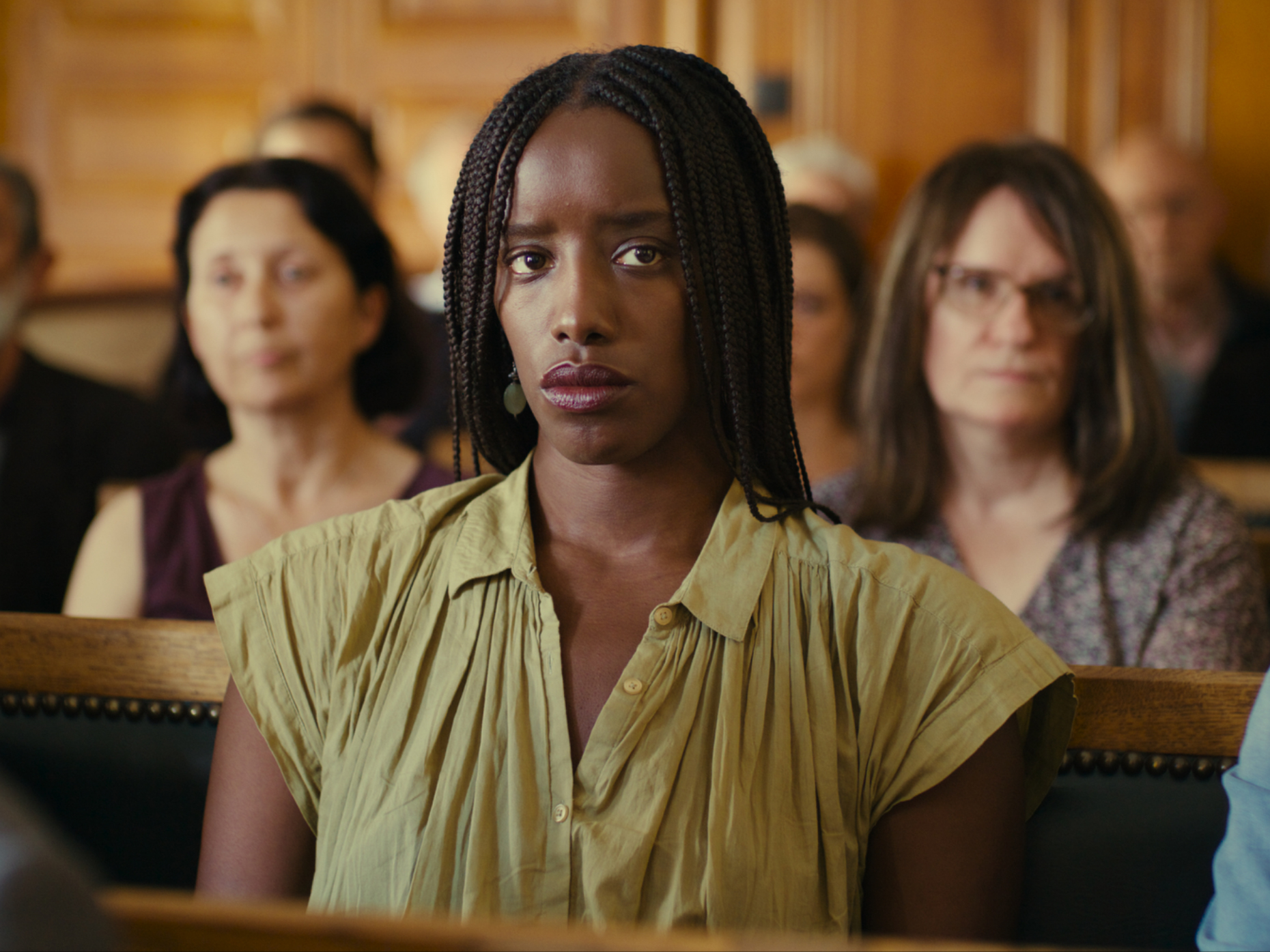
- Golden Globe Awards
Saint Omer (France)
Late on the evening of November 19th, 2013, Fabienne Kabou, a Senegalese emigrant, left her 15-month-old daughter to drown at high tide on a northern France beach. It was a horrific act that made headlines, the mother admitted to it but failed to explain why she did it.
Three years later, on an impulse, renowned French-Senegalese documentarian Alice Diop felt compelled to attend her murder trial taking place in Saint-Omer, not far from where the infanticide happened. While watching the court proceedings, she had an epiphany.
“I was obsessed with this story from the start, and I needed to see for myself the woman behind the media storm,” explains the 43-year-old filmmaker in the press notes. “I was really very upset, flabbergasted. I sat there, riveted and dumbfounded by this woman’s real story, connecting her life to my own experience, to that of my mother, to the lives of so many Senegalese women I know. And I came to understand we shared something profound and unspeakable as black African women and, being pregnant at the time, it made me question my own relationship to motherhood while having to face my own difficult truths. Only then did I decide to make this film.”
The result is her debut feature Saint Omer, which won the Grand jury prize and the Lion of the Future Award for Debut Film at the last Venice Film Festival. Diop admits never wanting to do a straightforward documentary. For references, she had in mind some court room dramas, especially “Henri-Georges Clouzot’s The Truth, as well as literary works like Truman Capote’s In Cold Blood, André Gide’s Recollection of the Assize Court and Emanuel Carrère’s The Adversary.”
Using as a canvas what she had experienced during the trial, Diop tells the intertwined narrative of her alter ego Rama (newcomer Kayije Kagame), a novelist coincidentally working on a book about Medea, who is watching the trial of Laurence Coly (Guslagie Malanda), the stoic woman accused of infanticide. Presented by the defense as highly intelligent and educated, she is seemingly unable to logically justify her behavior, arguing unconvincedly she might have been under the spell of mysterious curses and witchcraft from relatives in her native country.
In Saint Omer, Alice Diop manages to transcend the typical court drama to achieve a very intimate and organic feel through the prism of her personal story, while offering no answer as to what pushed Laurence to such extremes. “Ultimately, my goal was not to understand the motive but to reflect upon the act,” she said. “How does it affect us? To me, tragedy means exposing stories, both banal and uncommon, that pierce our innermost depths. It’s what makes this case universal, the fact that it is carried on the body of a black woman also makes the film political. The character of Laurence encourages all viewers, man or woman, white or Black, to look inside themselves.”
As for Fabienne Kabou, she was sentenced to twenty years imprisonment, reduced to fifteen after an appeal, which she is still currently serving.

